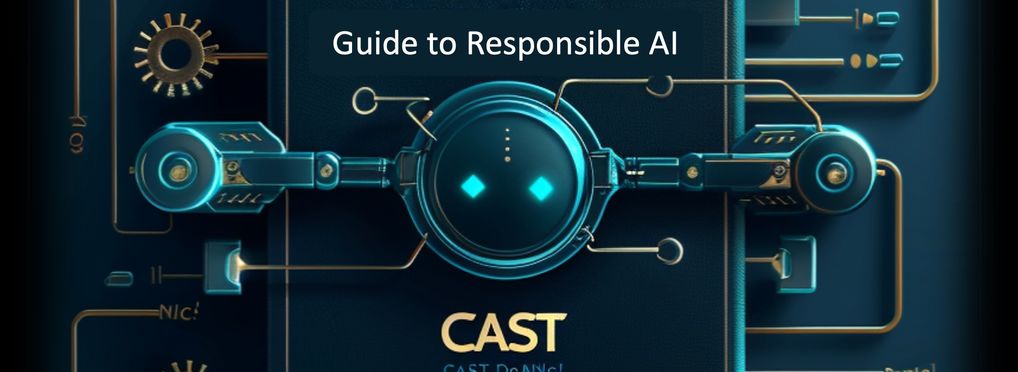These tools and metrics are designed to help AI actors develop and use trustworthy AI systems and applications that respect human rights and are fair, transparent, explainable, robust, secure and safe.
CAST (Constructive Approach to Smart Technologies)

CAST is an open framework for responsible AI design and engineering. It offers design heuristics and patterns, and RAI recommendations through generative features and online content.
CAST started in 2022 as a conceptual framework supporting the design, development and implementation of AI systems based on AI components (Smart Solutions). In 2023 the initial version of the framework had been developed and transformed into a digital asset, offering web access framework elements such as use cases, RAI guidelines or design patterns.
The broad availability of GPT solutions, along with the advancement of RAG architectures enabled CAST team to radically rethink the concept of the framework. As the result in 2024 CAST has been transformed from a knowledge portal into truly interactive, digital co-pilot supporting AI practitioners at various stages of Smart Solution development.
CAST offers a range of generative features supporting a “RAI by design” approach across the AI system / product development lifecycle.
About the tool
You can click on the links to see the associated tools
Developing organisation(s):
Tool type(s):
Objective(s):
Impacted stakeholders:
Target sector(s):
Country/Territory of origin:
Lifecycle stage(s):
Type of approach:
Maturity:
Usage rights:
Target groups:
Target users:
Stakeholder group:
Geographical scope:
People involved:
Required skills:
Technology platforms:
Tags:
- responsible ai collaborative
- System architecture
- llm
- responsible ai engineering
Use Cases
Would you like to submit a use case for this tool?
If you have used this tool, we would love to know more about your experience.
Add use case



 Partnership on AI
Partnership on AI


























